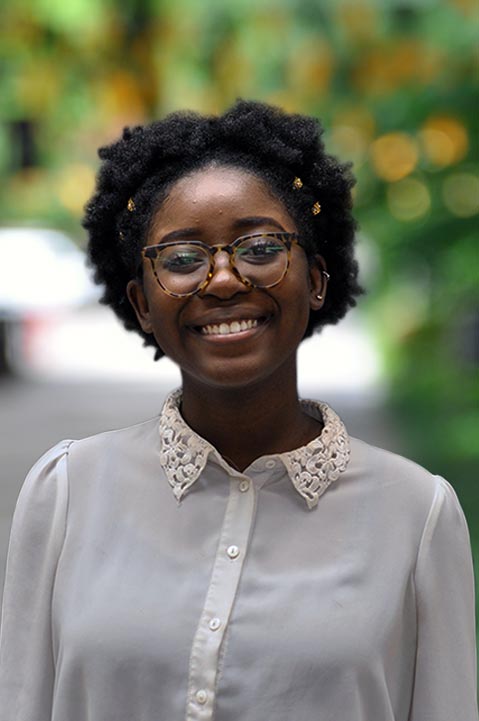Chemical Engineering

Who is your mentor for your research? How did you arrange to work with this person?
I work for Dr. Lee Blaney in the Chemical, Biochemical, and Environmental Engineering department. My advisor from the Howard Hughes Medical Institute program set up a 6 week rotation in Dr. Blaney’s laboratory. After that, Dr. Blaney invited me to continue working in his laboratory.
How did you know this was the project you wanted to do?
One of my life goals is to help solve the global water crisis. I knew that one way that I could do this was to study Environmental Engineering during my undergraduate career. When I started at the University of Maryland, Baltimore County I learned that there was a lab on campus that conducts research concerning water quality, and I knew that I had to join this lab.
Is this your first independent research?
Yes, this is my first independent research project.
Do you get course credit for this work?
No, I do not.
How much time do you put into it?
I put in about 8-10 hours a week.
How did you hear about the Undergraduate Research Award (URA) program?
I learned about the Undergraduate Research Award program from my mentor, Dr. Blaney.
What academic background did you have before you applied for the URA?
I had just completed the first semester of my sophomore year when I applied for the URA. I had completed about 6 months of research and had just passed my Chemical Engineering gateway requirements.
Was the application difficult to do?
The application was a bit difficult for me, because I am still learning how to write technical papers. It was difficult for me to summarize what I am doing and how I am doing it in a concise, clear manner.
How much did your mentor help you with the application?
My mentor helped revise my application multiple times. He gave me valuable advice on writing and communicating my research.
What has been the hardest part about your research?
There was a learning curve when I first joined the lab. I joined the lab in the spring semester of my freshman year. Many of the experiments I would run required knowledge that I had not acquired in class yet. I had to learn difficult concepts and apply them for my research.
What was the most unexpected thing?
I did not expect to enjoy data analysis as much as I do. Deciphering the results I receive after weeks of research is very enjoyable.
How does your research relate to your work in other classes?
All of my research requires skills that I am learning in my engineering and chemistry courses. As I learn more in my classes, I get a better grasp on the research that I am conducting.
What else are you involved in on campus?
I am a member of the National Society of Black Engineers. Last semester, I was an athletic tutor, and about a year ago I volunteered weekly at the Baltimore Animal Rescue and Care Shelter.
What is your advice to other students about getting involved in research?
I would tell all students to try it out! Many people are scared that they do not have enough knowledge to participate in research, but that is not true! Nobody expects you to know everything from the get-go. You learn so much as you conduct research.
What are your career goals?
I would like to attain a PhD in Environmental Engineering and continue working in water quality research. I would like to work to create water quality technology that can be used in lower resource regions.
10/17/17